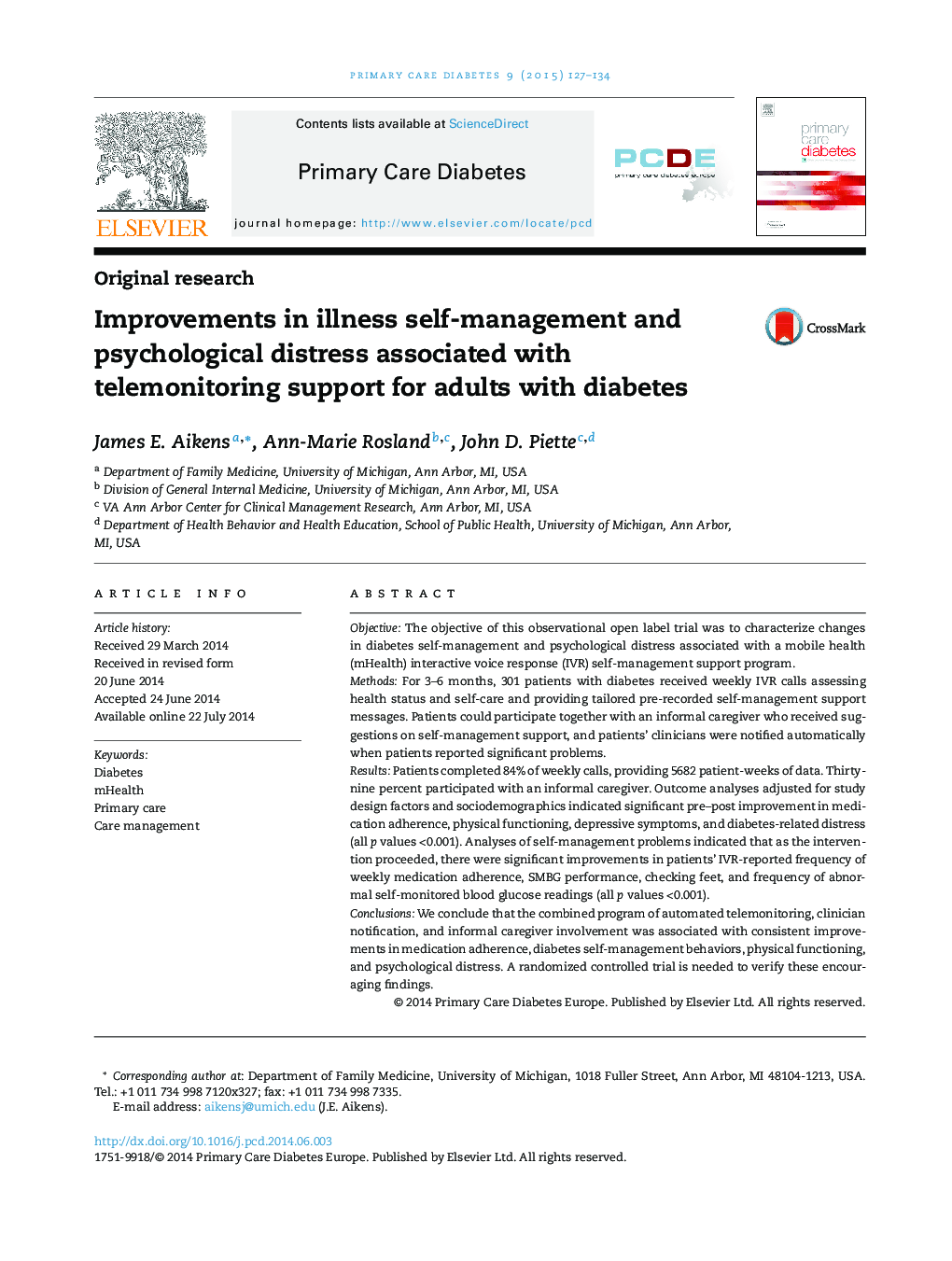| Article ID | Journal | Published Year | Pages | File Type |
|---|---|---|---|---|
| 2675494 | Primary Care Diabetes | 2015 | 8 Pages |
•Diabetes patients who received a weekly mHealth intervention showed improvements in five weekly self-management indicators.•Three-to-six month improvements were seen in adherence, physical function, and psychological adjustment.•This inexpensive intervention could lead to broad benefits and prevent diabetes complications.
ObjectiveThe objective of this observational open label trial was to characterize changes in diabetes self-management and psychological distress associated with a mobile health (mHealth) interactive voice response (IVR) self-management support program.MethodsFor 3–6 months, 301 patients with diabetes received weekly IVR calls assessing health status and self-care and providing tailored pre-recorded self-management support messages. Patients could participate together with an informal caregiver who received suggestions on self-management support, and patients’ clinicians were notified automatically when patients reported significant problems.ResultsPatients completed 84% of weekly calls, providing 5682 patient-weeks of data. Thirty-nine percent participated with an informal caregiver. Outcome analyses adjusted for study design factors and sociodemographics indicated significant pre–post improvement in medication adherence, physical functioning, depressive symptoms, and diabetes-related distress (all p values <0.001). Analyses of self-management problems indicated that as the intervention proceeded, there were significant improvements in patients’ IVR-reported frequency of weekly medication adherence, SMBG performance, checking feet, and frequency of abnormal self-monitored blood glucose readings (all p values <0.001).ConclusionsWe conclude that the combined program of automated telemonitoring, clinician notification, and informal caregiver involvement was associated with consistent improvements in medication adherence, diabetes self-management behaviors, physical functioning, and psychological distress. A randomized controlled trial is needed to verify these encouraging findings.
